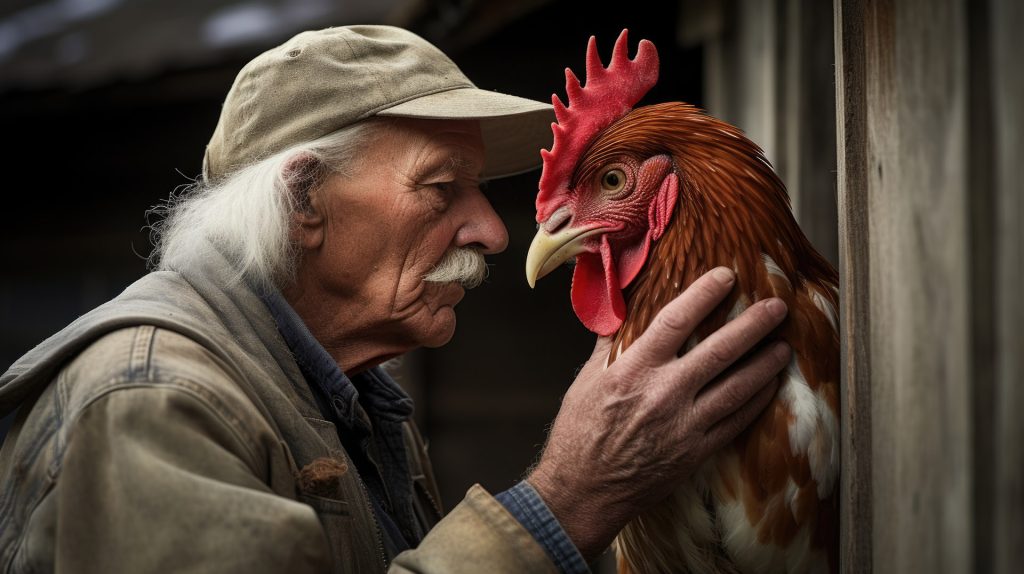Gamefowl, also known as fighting cocks, are a beloved and respected breed of poultry. But, like any animal, they can be susceptible to disease and illness. As a gamefowl owner, it’s important to take proactive measures to maintain your birds’ health and wellbeing. In this article, we’ll cover the basics of gamefowl health management, including preventative measures, common illnesses, and treatment options.
“Gamefowl health management is essential for raising healthy and productive birds. By following these tips, you can help to keep your gamefowl healthy and free of disease.”
Preventative Measures
The best way to keep your gamefowl healthy is to take preventative measures. Here are some tips for maintaining good gamefowl health:
Monitor Weight and Health Regularly
Regular monitoring of your gamefowl’s weight and overall health is essential. Weigh your birds regularly and keep a record of their weight over time. This will help you identify any sudden weight loss or gain, which can be a sign of illness. Additionally, keep an eye on your birds’ overall health. Are they active and alert? Do they have healthy-looking feathers? These are all important indicators of good health.
Consistent Feeding Practices
Consistency in feeding practices is key to maintaining good gamefowl health. Feed your birds a balanced diet that includes a mix of grains, protein, and vegetables. Avoid overfeeding or underfeeding, as both can cause health problems. Additionally, make sure your birds have access to clean, fresh water at all times.
Balanced Diet and Nutritional Supplements
A balanced diet is essential for gamefowl health. Consider adding nutritional supplements to your birds’ diet, such as vitamins and minerals. These supplements can help keep your birds healthy and prevent illness.
Clean Living Environment
A clean living environment is essential for preventing disease in gamefowl. Keep your birds’ living area clean and well-ventilated. Remove any debris or waste regularly and disinfect the area periodically.
Consult with a Veterinarian or Animal Nutrition Expert
Consulting with a veterinarian or animal nutrition expert can provide valuable insight into maintaining good gamefowl health. These professionals can provide advice on feeding practices, supplements, and preventative measures.
Common Illnesses
Despite your best efforts, your gamefowl may still become ill. Here are some common illnesses and their symptoms:
Coccidiosis
Coccidiosis is a parasitic disease that affects the intestines. Symptoms include diarrhea, loss of appetite, and weight loss. Treatment options include medication and improved sanitation practices.
Fowlpox
Fowlpox is a viral disease that affects the skin and respiratory system. Symptoms include lesions on the skin and respiratory problems. Treatment options include medication and vaccination.
Marek’s Disease
Marek’s Disease is a viral disease that affects the nervous system. Symptoms include paralysis and loss of coordination. Treatment options include medication and vaccination.
Newcastle Disease
Newcastle Disease is a viral disease that affects the respiratory system. Symptoms include respiratory problems and diarrhea. Treatment options include medication and vaccination.
Treatment Options
If your gamefowl becomes ill, it’s important to seek treatment immediately. Here are some treatment options:
Medication
Many illnesses can be treated with medication, such as antibiotics or antiviral drugs. Consult with a veterinarian to determine the appropriate medication and dosage for your birds.
Vaccination
Vaccination is an effective preventative measure for many diseases. Consult with a veterinarian to determine which vaccines are appropriate for your birds.
Isolation
Isolating sick birds can prevent the spread of disease to other birds. Keep sick birds separate from healthy birds and provide them with appropriate care and treatment.
Conclusion
Maintaining good gamefowl health is essential for the health and wellbeing of your birds. Take preventative measures, monitor your birds’ health regularly, and seek treatment immediately if they become ill. By following these guidelines, you can help ensure a long and healthy life for your gamefowl.
 A Call to Unity: Let’s Be as Game as Our Roosters
A Call to Unity: Let’s Be as Game as Our Roosters  Purebred Warrior Digital Magazine — Issue 27
Purebred Warrior Digital Magazine — Issue 27  ROMULO DOMINGUEZ BALBALIN CLINCHES SOLO CHAMPIONSHIP AT 2025 MASTER BREEDERS’ CUP11-STAG NATIONAL DERBY LATE BORN EDITION
ROMULO DOMINGUEZ BALBALIN CLINCHES SOLO CHAMPIONSHIP AT 2025 MASTER BREEDERS’ CUP11-STAG NATIONAL DERBY LATE BORN EDITION  Manok Ni Cano Gwapo: World’s Largest Rooster-Shaped Building Makes History
Manok Ni Cano Gwapo: World’s Largest Rooster-Shaped Building Makes History  FIESTAG 2023: Celebrating Success and Looking Ahead to FIESTAG 2024!
FIESTAG 2023: Celebrating Success and Looking Ahead to FIESTAG 2024!  The Passionate Gamefowl Breeder: An Interview with Jason Daniel
The Passionate Gamefowl Breeder: An Interview with Jason Daniel  The 2024 World Slasher Cup 2: A Legendary Showdown at the Smart Araneta Coliseum
The 2024 World Slasher Cup 2: A Legendary Showdown at the Smart Araneta Coliseum  GAB CHAIRMAN OVERSEES 2024 WORLD SLASHER CUP PRE-FINALS: THE PINNACLE OF COCKFIGHTING EXCELLENCE
GAB CHAIRMAN OVERSEES 2024 WORLD SLASHER CUP PRE-FINALS: THE PINNACLE OF COCKFIGHTING EXCELLENCE 

